
(Updated at 3:50 p.m.) Marcia St. John-Cunning no longer needs to run as a write-in candidate to become the Franconia District’s next school board representative.
The former Fairfax County Public Schools interpreter and family liaison re-qualified for the general election ballot yesterday (Wednesday) after a county judge let her submit two more pages of signatures supporting her petition for candidacy.
Fairfax County Circuit Court Judge Richard Gardiner told Fairfax County General Registrar Eric Spicer to accept the 17 signatures “as if [they were] filed with the registrar in March 2023,” according to the order shared on Twitter shared by Bryan Grahm, chair of the Fairfax County Democratic Committee, which has endorsed Marcia St. John-Cunning.
The Fairfax County Office of Elections confirmed her reinstated candidacy with a notice on its website. A spokesperson said the general registrar had no comment beyond that notice.
“We are pleased by today’s order and elated to see her reinstated as a qualified candidate for School Board,” Graham said in a statement last night. “Marcia St. John-Cunning is an exemplary candidate who has worked in our local schools and knows the families of Franconia. The Fairfax County Democratic Committee will be using the next week to ensure Marcia wins this election.”
St. John-Cunning is competing against Republican-endorsed candidate Kevin Pinkney to succeed current Franconia District Representative Tamara Derenak-Kaufax, who is retiring after 12 years on the Fairfax County School Board.
Though she obtained the Democratic endorsement without contest, St. John-Cunning faced two legal challenges by Republicans who argued that petition errors should’ve stopped Fairfax County General Registrar Eric Spicer from certifying her candidacy. A September lawsuit by the Fairfax County Republican Committee that took issue with the lack of dates by some signatures was dismissed.
However, a complaint filed by the 8th Congressional District Republican Committee and two voters in that district found traction with Gardiner, who ruled on Oct. 25 that 11 of St. John-Cunning’s submitted signatures were invalid because her address was wrong on one page of her petition.
The invalidation of those signatures left St. John-Cunning short of the 125 needed to qualify.
St. John-Cunning called the ruling “unprecedented” in an announcement on Saturday (Oct. 28) that she would run as a write-in candidate. With early voting underway since Sept. 22, more than 3,000 Franconia District voters had already cast a ballot, her campaign said.
According to the FCDC, St. John-Cunning’s legal team argued in court yesterday that the signatures should’ve been challenged before the filing deadline on Aug. 18, noting that she had gotten more signatures but didn’t submit them because the registrar said they weren’t necessary to qualify. Her candidacy was originally certified back on March 7.
In a statement, St. John-Cunning called Gardiner’s reinstatement of her candidacy “justice for the 3,000 residents who already exercised their constitutional right to vote.” Read More
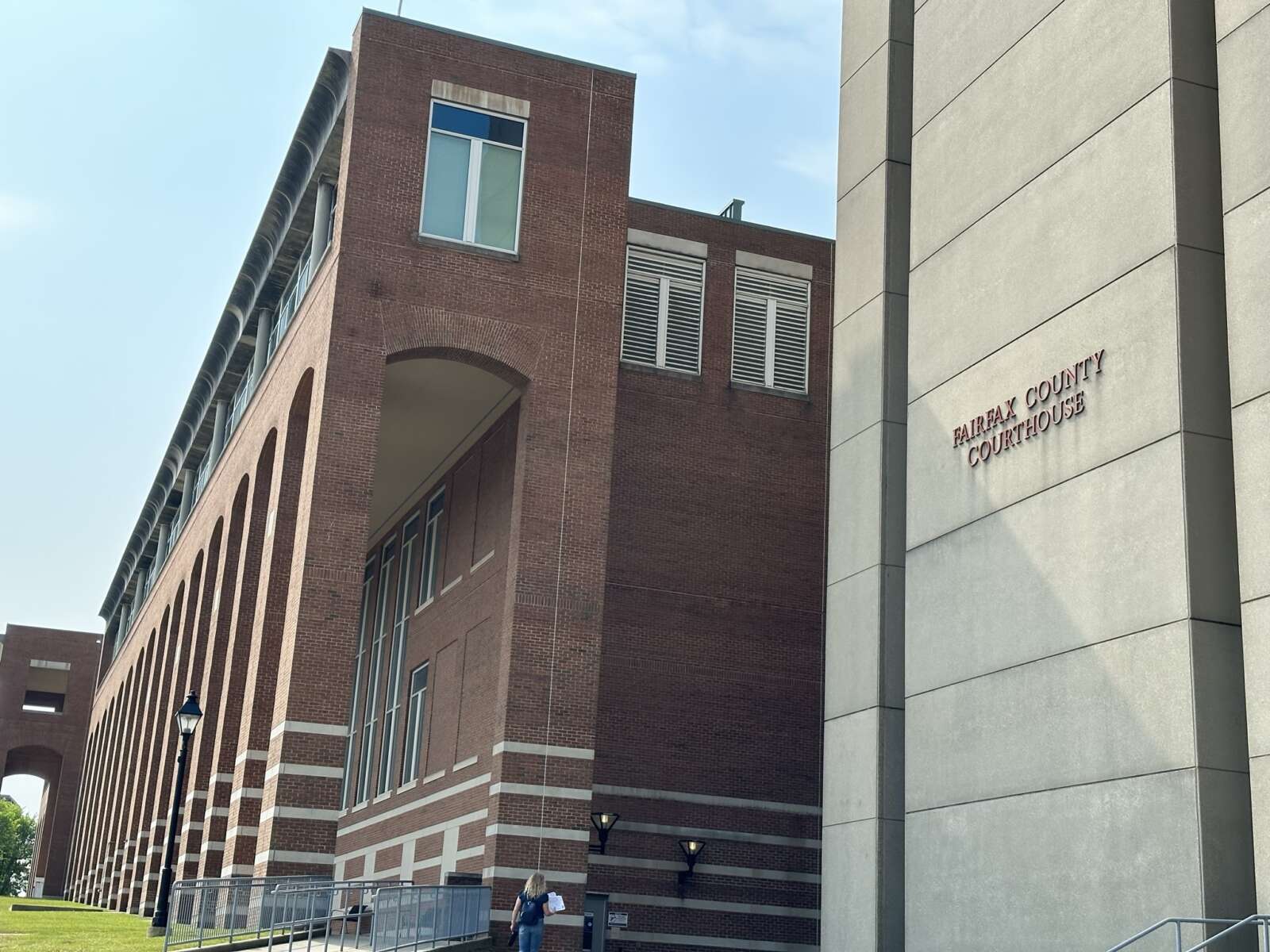
A Fairfax County judge is weighing whether to throw out a lawsuit from environmental groups challenging Republican Gov. Glenn Youngkin’s effort to remove Virginia from a regional carbon market.
Judge David Oblon heard oral arguments from Virginia Solicitor General Andrew Ferguson and Southern Environmental Law Center Senior Attorney Nate Benforado Friday morning in Fairfax Circuit Court. The hearing, which lasted about 30 minutes, concluded with the judge saying he would take the case under advisement before issuing a written decision.
Ferguson argued on behalf of the State Air Pollution Control Board, the Department of Environmental Quality and DEQ Director Mike Rollband to dismiss the lawsuit filed by SELC on behalf of Faith Alliance for Climate Solutions (FACS), Appalachian Voices, Interfaith Power and Light and the Association of Energy Conservation Professionals. The suit challenges Youngkin’s regulation to remove Virginia from the Regional Greenhouse Gas Initiative.
The Regional Greenhouse Gas Initiative, or RGGI, is a multi-state carbon market that requires electricity producers to purchase allowances to emit carbon. The allowances are then returned to the states; in Virginia, those proceeds are funneled into energy efficiency and flood resilience programs.
Youngkin, even before he became governor, has alleged that RGGI creates a “hidden tax” on Virginia utility customers, since utilities in Virginia are allowed to recover costs for the allowances from their ratepayers.
In July, the administration published the regulation to repeal Vrignia’s participation in RGGI at the end of this year.
Environmental groups have decried the withdrawal since Youngkin began pushing for it by citing the funds – over $500 million – it directs toward reducing energy bills for customers by helping homes conserve energy better and preventing flood damage through planning and infrastructure projects.
On Friday, Ferguson opened arguments by stating that out of all the plaintiffs, only the Association of Energy Conservation Professionals had demonstrated any harm worthy of a lawsuit because the group claims that they work with professionals who rely on the revenues the state receives from RGGI. The suit from the other groups, including Fairfax County-based FACS, doesn’t demonstrate that the other entities are directly impacted by the loss of any RGGI revenues, and should be dismissed, Ferguson argued.
The environmental groups could also have jurisdiction in Floyd County, where the Association of Energy Conservation is based, in Richmond where Interfaith Power and Light is headquartered and in Charlottesville, where the Southern Environmental Law Center is based, Ferguson added. He said that in the interest of “judicial economy,” the case should be dismissed entirely and not allowed to be transferred elsewhere, to prevent the plaintiffs from searching for favorable venues. Read More

(Updated at 11:10 a.m. on 10/30/2023) The Democratic-endorsed candidate for the Fairfax County School Board’s Franconia District seat has been disqualified due to an error on her petition to get on the ballot.
The Fairfax County Office of Elections has posted a notice on its website informing voters that Marcia St. John-Cunning was disqualified yesterday (Wednesday) by a Fairfax County Circuit Court order. A judge ruled that her petition was invalid because of an error in her address on its front page.
St. John-Cunning, a former Fairfax County Public Schools interpreter and family liaison, is competing against Republican-endorsed Kevin Pinkney, a lawyer, to succeed Tamara Derenak-Kaufax, who announced in January that she wouldn’t seek reelection after 12 years on the school board.
(Correction: The spelling of Kevin Pinkney’s name has been fixed.)
Though the school board races are nonpartisan, candidates can get political party endorsements. The Fairfax County Democratic Committee (FCDC) allowed registered members to vote for its endorsements for the first time this year, though St. John-Cunning’s bid for support in the Franconia District was uncontested.
The complaint that led to St. John-Cunning’s disqualification was filed by the 8th Congressional District Republican Committee and two voters in that district, who argued that Fairfax County General Registrar and Director of Elections Eric Spicer should’ve invalidated her ballot petition over the address error, Patch reported.
Judge Richard Gardiner ruled that Spicer “violated his non-discretionary ministerial duty” by not invalidating the seventh page of St. John-Cunning’s petition, according to his order.
“The pages denoted as ‘4’ in the lower right corner does not have her address on the front page,” the order said. “Therefore, this petition page and the signatures on the front and back page are invalid as a matter of law.”
Eleven signatures were deemed invalid, putting St. John-Cunning below the 125 signatures needed to get on the ballot, according to Patch.
A previous lawsuit that took issue with six signatures on her petition was dismissed.
The Fairfax County Republican Committee and an attorney for the plaintiffs praised Gardiner’s ruling as “a clear victory for the rule of law.”
“The public’s confidence in the integrity of our elections depends on the law being applied consistently to all candidates, regardless of party or position,” the attorney, Trey Mayfield, said. “It is the duty of Election Registrar and County Electoral Board to ensure that elections are managed with uniform, law-based standards. They should do so without the courts having to order them to perform those obligations.”
The FCDC, however, blasted Gardiner and the Virginia Department of Elections for disqualifying its supported candidate, stating that the ruling disenfranchises the over 3,000 Franconia District voters who’ve cast a ballot since early voting for the Nov. 7 general election began on Sept. 22. Read More
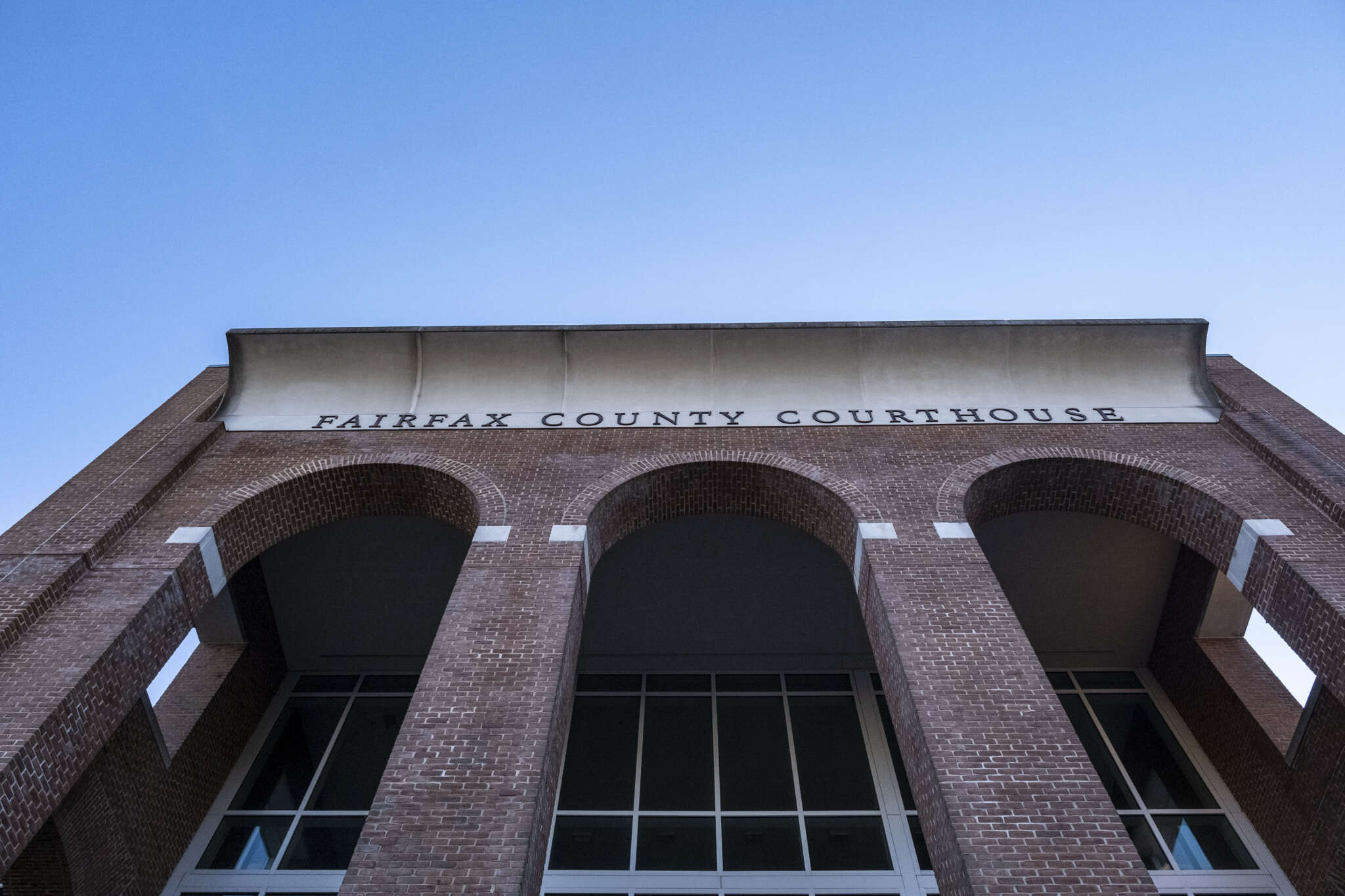
(Updated at 5 p.m.) A former Fairfax County police officer will face a court trial for shooting and killing Timothy Johnson outside Tysons Corner Center in February.
A grand jury indicted Wesley Shifflett today (Thursday) on felony charges of involuntary manslaughter and reckless discharge of a firearm, Fairfax County Commonwealth’s Attorney Steve Descano’s office announced.
According to police, Shifflett shot Johnson during a foot pursuit on Feb. 22 after he allegedly attempted to steal designer sunglasses from Nordstorm. A second officer identified as James Sadler, an eight-year veteran of the Fairfax County Police Department, also fired his gun.
Shifflett was fired by the FCPD, but a grand jury convened in the spring declined to indict him. Sadler remains employed by the police department.
In April, Descano requested a second, special grand jury that would allow prosecutors in the room while officers give testimony, something that wasn’t allowed during the original, regular grand jury’s hearings.
Carl Crews, an attorney representing Johnson’s family, confirmed the indictment. Johnson’s mother, Melissa Johnson, says her initial reaction was “just relief,” but she also has some mixed feelings knowing how rare an indictment is in cases against police officers.
“I don’t rejoice in what is coming upon the officer, and I also don’t rejoice because I know that this indictment and the news of this indictment is not the case for so many, many, many other impacted families of children, Black and brown, who’ve been the subject of police violence,” Johnson told FFXnow. “And so, as much as my heart is joyful, and I’m elated, I am still sorrowful of the impact and implications this had, that everybody just doesn’t get this to add to their story…There’s another family involved as well: this former officer, his family, his coworkers. So, my heart is sorrowful for this too.”
Descano said in a statement that the grand jury’s indictment will allow a jury of community members to see all evidence in the case:
As the elected head of Fairfax County’s justice system, my primary goal is to keep this community safe, and I have the utmost respect for the police officers throughout Fairfax County who work tirelessly to protect our community.
The work of public safety includes charging officers for crimes when such actions are legally warranted. After reviewing the evidence in this case, I believe that probable cause existed that Shifflett committed a crime, and that the entirety of the evidence should be put to a jury of community members. Seeking justice blindly in cases involving officers improves public trust in the law enforcement agencies that serve and protect our communities; failing to do so disgraces the role of prosecutor and ruins the public’s trust in the justice system.
Our nation’s justice system has historically been stacked in favor of protecting powerful institutions and individuals, and it is no small feat that the grand jurors returned a true bill after reviewing this matter.
I cannot imagine the pain Timothy’s family has felt through the months after his death. Though the grand jury returned an indictment for this incident, this will not heal the wound in the Johnson family. I join the rest of the Fairfax County community in grieving for Timothy and his family.
Shifflett’s attorney, Caleb Kershner, blasted Descano for not accepting the original grand jury’s decision, calling his push for the special grand jury “purely political and shameful.”
“Descano’s actions have made Fairfax less safe,” Kershner said. “He has torn down the [police] department morale. He is simply Monday morning quarterbacking an officer’s decision to use lethal force when he reasonably believed he was about to be shot. It’s easy to sit back and second guess an officer’s actions. Few people understand what it’s like to have a gun pulled on you and regularly being put in risk of death. These men and women in uniform serve by putting their lives on the line every day. Descano has no concept of that.”
Though officers combed the scene for potential evidence, the FCPD later confirmed that Timothy Johnson didn’t have a weapon when he was shot.
A trial date will be scheduled on Friday, Oct. 20. At that time, Schifflett will be given a choice for whether a judge or a jury will preside over the trial, according to the Commonwealth’s Attorney’s Office.
Johnson’s death sparked renewed scrutiny of the FCPD’s policies regarding the use of force and foot pursuits. Since 2021, when current Police Chief Kevin Davis assumed the job, officers have shot nine people, including Johnson and Brandon Lemagne this year.
Last week, Davis addressed a series of reform recommendations from the nonprofit Police Executive Research Forum (PERF), which was hired to review the recent shootings, and a community Police Reform Matrix Working Group convened by Franconia District Supervisor Rodney Lusk, who chairs the Board of Supervisors’ public safety committee.
Davis told the public safety committee that most recommendations have been implemented in some form, including a policy requiring that foot pursuits be documented and supervised, but a more detailed policy dictating when officers can pursue an individual is still in the works.
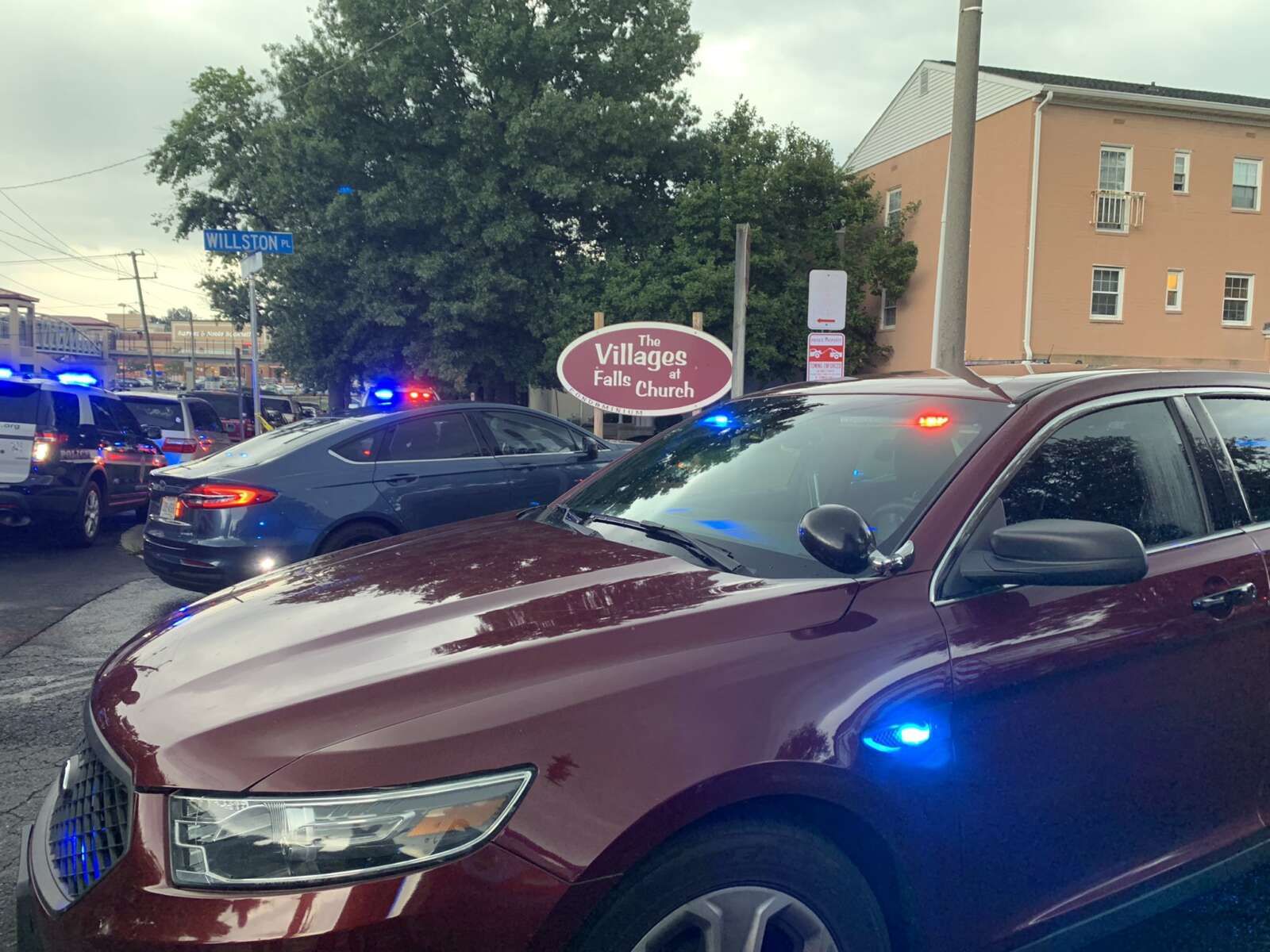
(Updated at 11:35 a.m.) An Arlington man could be sentenced to life in prison for fatally stabbing a woman and setting her body on fire in a Seven Corners condominium last year.
A Fairfax County Circuit Court jury has convicted 48-year-old Richard Montano of first-degree murder and arson for killing Silvia Vaca Abacay, whose body he subsequently attempted to burn, Fairfax County Commonwealth’s Attorney Steve Descano announced yesterday (Thursday).
“As Commonwealth’s Attorney, I’ve seen considerable crime scenes and photos, but the photos from this case stood out in terms of the severity of the victim’s injuries,” Descano said in a statement. “Nothing can undo Silvia’s death, but a conviction ensures that the defendant is no longer a danger to members of our community. I hope today’s verdict provides the victim’s family with the first step towards healing.”
Officers were called to a condo on Willston Place in The Villages at Falls Church at 3:05 p.m. on Aug. 10, 2022 for a man and woman who were heard arguing, Fairfax County Police Department Major Crimes Bureau Commander Ed O’Carroll said at the time.
Abacay had been stabbed multiple times, and her body was on fire when police found her. Though first responders extinguished the fire, she died at the scene.
According to police, a witness reported seeing a man flee the scene, prompting an extensive search of the area that briefly required residents to shelter in place. Montano was arrested at his home in Arlington around 6:30 p.m. that same day.
He was originally charged with second-degree murder, arson in an occupied dwelling and burglary with the intent to commit murder.
Descano’s office says prosecutors asked the jury to find Montano guilty of first-degree murder, noting that murder charges typically have some built-in flexibility allowing a jury or judge to determine if a first degree, second degree or manslaughter charge is most appropriate.
“Murder charges are usually indicted as second-degree because that is based on the information/evidence available at the time,” Laura Birnbaum, public information officer for the Fairfax County Commonwealth’s Attorney’s Office, said by email. “Then, at trial, prosecutors can ask a jury or judge to find either first or second depending on the level of premeditation.”
The burglary charge was dropped at a preliminary hearing last fall, Birnbaum confirmed.
During a trial that began on Monday (Oct. 2), prosecutors made the case that Montano had mistaken Abacay for her friend, who had broken up with him after an eight-year relationship in July. Abacay was temporarily living at her friend’s apartment.
“A neighbor’s Ring camera footage showed that Montano had entered her apartment without her knowledge multiple times in the preceding month, with his last entry just 10 days before the murder occurred,” the Commonwealth’s Attorney’s office said. “The same neighbor called 911 four times that afternoon after hearing screaming and banging from across the hall.”
The neighbor testified to a judge at the preliminary hearing in November that his last 911 call was to tell responders that “there was smoke and fire coming out of the building,” DC News Now reported.
Medical examiners determined that Abacay died from the stab wounds before Montano set her body on fire, the Commonwealth’s Attorney’s office says.
The murder and arson charges both carry potential life sentences. Montano is scheduled to be sentenced on Jan. 19, 2024.
Photo courtesy Ed O’Carroll/Twitter
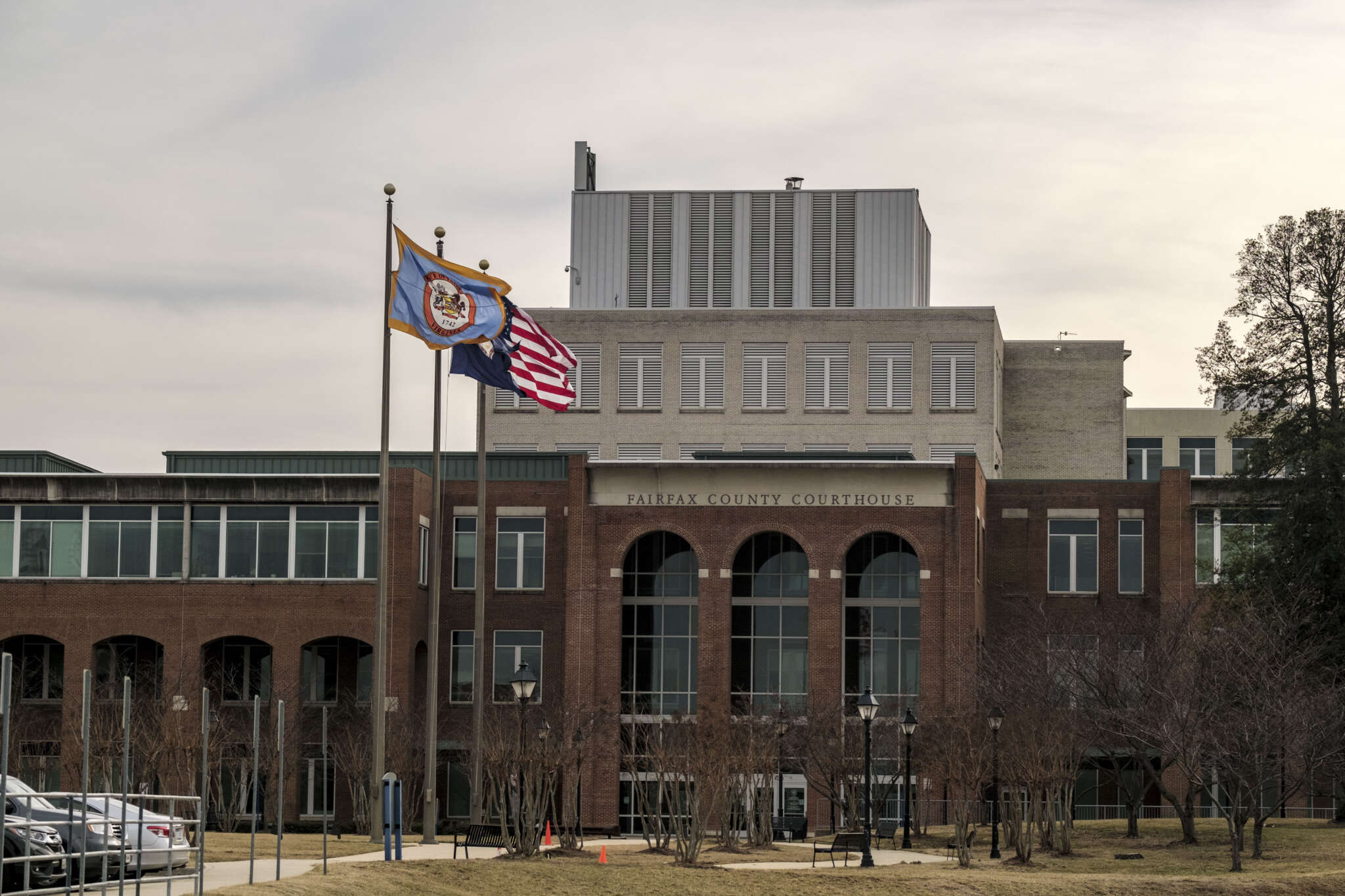
A woman who shot and killed her mother and sister at their shared home in McLean six years ago has been convicted of murder for a second time.
A Fairfax County Circuit Court jury found Megan Hargan guilty of first-degree murder and using a firearm while committing a felony on Friday (Sept. 22) after a previous conviction got vacated due to juror misconduct.
“Pamela and Helen [Hargan] were loved by many, and their deaths in 2017 tore this community apart, with the added shock and horror of being killed in their own home by a family member,” Fairfax County Commonwealth’s Attorney Steve Descano said in a statement on Friday. “…Today’s guilty verdict has been a long time coming, and I hope [that] Pam and Helen’s loved ones will be able to take one step closer to healing.”
According to news releases from the time, police officers discovered the bodies of Pamela, 63, and Helen Hargan, 24, inside their home in the 6700 block of Dean Drive on July 14, 2017 after receiving a call around 2 p.m. that someone might’ve been killed there.
All three women lived in the house at the time, along with Megan Hargan’s then-8-year-old daughter, who wasn’t home when the shootings occurred, according to Descano’s office.
The Fairfax County Police Department initially characterized the killings as a murder-suicide, where Helen Hargan shot her mother before turning the gun on herself. But when announcing Megan Hargan’s arrest on Nov. 9, 2018, officials said there was suspicion “early on” that the scene may have been staged, WTOP reported.
Those suspicions honed in on Megan Hargan after investigators learned that she had tried to transfer money from her mother Pamela’s bank account on both the day before and the day of the murders, the FCPD said in 2018.
From there, police determined that the killings were motivated by a conflict over finances, the commonwealth’s attorney’s office said in a press release:
Megan, who was buying a house for her family, resented that her mother, Pamela, wasn’t helping her financially but was at the same time helping her sister Helen to buy a house. On July 13, the day before the killings, Megan attempted to transfer upwards of $400,000 from her mother’s bank account to pay for Megan’s new house, which was closing that day. The transaction was flagged as fraud, and the next day Megan shot her mother before attempting to make the same wire transfer again from her mother’s account. She then shot her sister Helen, who was upstairs. Both family members were killed by a .22 rifle, which belonged to Megan’s husband and was being stored in the McLean house temporarily.

The Fairfax County Courthouse will soon lend a helping hand to visitors intimidated by the prospect of navigating the legal system on their own.
The county’s new Self Help Resource Center will officially open at 4:30 p.m. on Oct. 5 with a kick-off event in the courthouse law library (4110 Chain Bridge Road, Room 115), the Fairfax Bar Association recently announced.
Supported by $96,000 in county funds, the center will offer free legal assistance and resources to anyone who has to deal with the court, particularly those who are representing themselves either by choice or because they’re unable to hire a lawyer.
“Access to justice for self-represented litigants is a significant issue facing the legal community today,” the Fairfax Bar Association said in a press release. “…Barriers faced by self-represented litigants include cultural and language barriers, procedural hurdles, and general difficulty navigating the court process and understanding legal terminology, from what forms to file, to where and when to appear, and what to say in court.”
The association says it began exploring the possibility of opening a self-help center after the Virginia Access to Justice Commission approved the creation of a pilot program on Dec. 9, 2021.
Created by the Virginia Supreme Court in 2013, the commission found in a 2019 report that the volume of cases where a litigant is representing themselves is high and may be increasing, reflecting general economic challenges and increased online media access.
Surveys of judges and clerks indicated that individuals representing themselves appear to often be low-income and have limited education, according to the report. Judges stated that people generally opted for that approach “because they cannot afford to hire an attorney and cannot obtain representation from legal aid.”
Among other ways to make the court system more transparent and accessible, such as the launch of a self-help website, the report recommended initiating self-help centers staffed by pro bono attorneys or qualified non-attorneys who can provide information about the legal process and court policies and procedures.
Fairfax County’s Self Help Center will be the first one to open in Virginia, according to the office of Franconia District Supervisor Rodney Lusk, who was a top advocate for the facility as chair of the Board of Supervisors’ public safety committee.
Here’s more on the new center from the bar association:
The Fairfax Bar Association in partnership with the Fairfax County Courts, Fairfax Law Library, Legal Services of Northern Virginia, Office of the Fairfax Public Defender, Office of the Fairfax Commonwealth’s Attorney, the Fairfax County Board of Supervisors, particularly the Office of Supervisor Rodney L. Lusk, the Fairfax County Sheriff’s Office, and law firms in Fairfax County collaborated in the creation of a self- help resource center located in the Law Library in the Fairfax County Courthouse Complex.
The Center will be open to the public and available for all individuals who are interacting with the judicial system as litigants, prospective litigants, witnesses, or who simply have business with the court. The Center will serve the large number of self-represented individuals, and would assist them in navigating the court process, providing legal information and forms to allow them to represent themselves in a meaningful way. The Center will serve as an alternative option for those who are unable to afford legal services and for whom pro bono help is not available. The types of assistance provided include the provision of legal information, referrals, forms, and resource materials on topics related to various court matters.
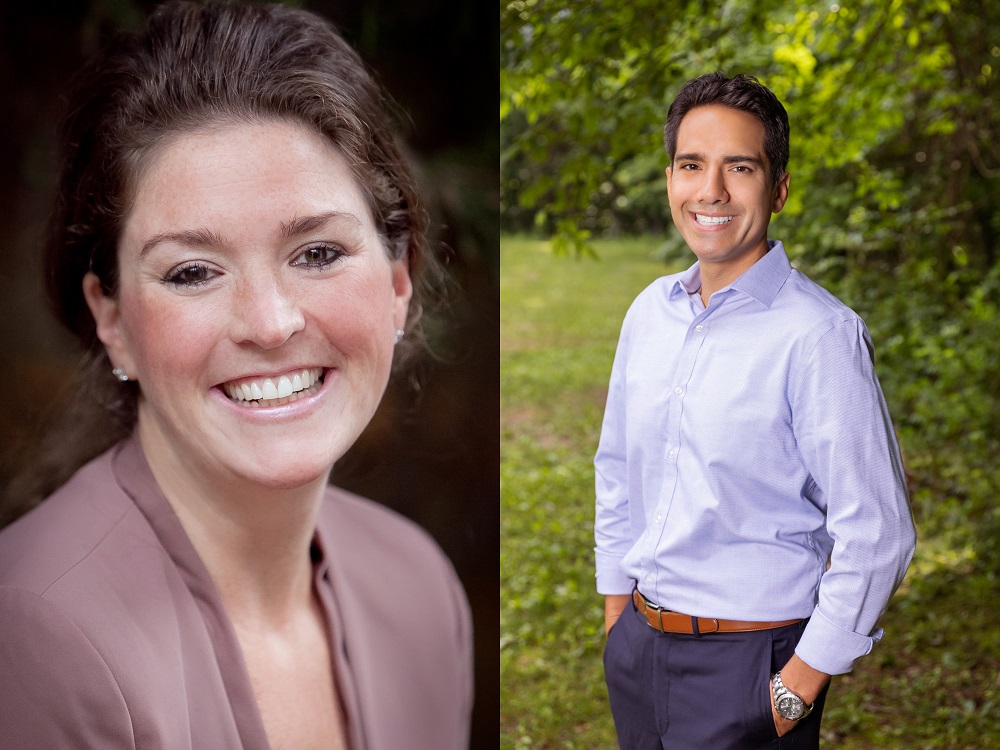
How public records should be handled will be a key issue in the race to replace retiring Fairfax County Circuit Court Clerk John Frey.
Democrat Chris Falcon and Republican Gerarda Culipher are both vying to fill the position that Frey will vacate when he retires in December. Frey, a Republican, has served as clerk of the county’s circuit court for the last 32 years. He ran for Virginia Attorney General in 2012.
Election Day is Nov. 7, but early voting starts in less than a month on Sept. 22.
The two candidates have distinctive points of view when it comes to how public records — like divorce cases, property records, and civil matters — should be made accessible.
Under Frey’s tenure, Fairfax County made records available online through its Court Public Access Network (CPAN) system, but it has a paywall, costing $150 a quarter, or $600 a year, to access.
While most jurisdictions utilize a platform run by Virginia’s Supreme Court, Fairfax County uses its own system and is the only Northern Virginia jurisdiction to charge for viewing information remotely, as permitted by Virginia code.
Records can be accessed for free in person at the Fairfax County Courthouse, and the court launched an e-filing system last year so residents and lawyers can submit documents online, though it also comes with subscription and search fees.
Currently the deputy clerk of the court for Arlington County, which offers free access to records through the Virginia platform, Falcon resides in Annandale and is a graduate of W.T. Woodson High School in Fairfax.
He told FFXnow that he’s running for court clerk to bring some reforms from Arlington to his home jurisdiction.
“I’ve encountered countless people who have reached barriers along the way when trying to access justice and access the court system,” Falcon said. “Those can be barriers because of their inability to pay for counsel or because of their lack of proficiency with the English language, or even because of transportation issues or childcare issues. For the past nine years, I’ve been working for the court system over here in Arlington, and I’ve been very proud that we’ve been able to take down a lot of those barriers.”
He called it a “real shame” that Fairfax County does not provide “free, online case information” — and he intends to change that if elected.
Falcon said this lack of access particularly hurts those representing themselves in civil cases or those who may not know the process.
“A lot of those people are not able to find the necessary information that they need, like their case numbers, their hearing dates and times, because that information is currently blocked behind a paywall that the Fairfax Circuit Court clerk’s office has in place,” he said. “I don’t know that they understand actually how many people it’s hurting.”
Culipher argues there are good reasons why the county handles its records and operates in the way it does. Currently the chief deputy clerk, she’s worked in the Fairfax County Circuit Court Clerk’s Office for a decade.
She agreed with Falcon that the “default posture” of the court is to provide public, open records, but there are “notable exceptions.”
Calling the Fairfax County Circuit Court the “hearth and home” court, since it deals with life events like probate, adoption, marriage, and divorce, Culipher noted that many records are “sensitive” and deserve to be treated “thoughtfully.” Read More

A Vienna couple who own multiple restaurants in the D.C. area, including Divan in McLean, pleaded guilty in federal court earlier this week to evading over $1 million in taxes and stealing COVID-19 relief funds.
As part of the plea agreement, Gholam Kowkabi, 63, and Karen Kowkabi, 64, will give the IRS the $1.35 million that they failed to pay in taxes related to their D.C. restaurants Ristorante Piccolo, Catch 15 and Tuscana West, the U.S. Attorney’s Office for D.C. announced on Monday (Aug. 14).
Gholam must also pay the Small Business Administration $738,657 in restitution for spending money from Covid loans intended to support Ristorante Piccolo on a “waterfront condo in Ocean City, Maryland, as well as personal investments, vacations for his family, and college tuition for his child,” according to the Department of Justice.
Those “personal investments” included Divan, a Persian and Mediterranean restaurant that opened at 1313 Old Chain Bridge Road in December 2021, per the press release.
A general manager for Divan said the restaurant had no comment on the case.
“This defendant robbed a program intended to help fellow restauranteurs and other small business owners who were struggling to stay afloat amid the devastating economic impacts of the COVID-19 pandemic,” U.S. Attorney Matthew Graves said in a statement. “He also created an elaborate scheme to hide assets and play a shell game with the IRS so he could avoid paying the more than one million dollars in taxes that he and his business owed. Our Office will continue to vigorously prosecute such frauds.”
Prosecutors say the Kowkabis admitted to “willfully” avoiding paying federal employment and income taxes and associated penalties from 1998 to 2018 by buying property through a separate entity and falsifying business records of the D.C. restaurants to hide personal purchases.
According to the DOJ, Gholam also obtained over $1.6 million in federal COVID-19 relief funds from May 13, 2020 to July 27, 2021 that businesses could use to cover payroll costs, rent and other expenses.
In these applications and loan agreements, Gholam Kowkabi fraudulently and falsely promised that the PPP, EIDL, and RRF proceeds would be used only for business-related and eligible purposes as specified in the applications. Instead, Gholam Kowkabi used a portion of the PPP funds, EIDL funds, and RRF funds for unauthorized purposes and for his own personal enrichment, including the purchase of a waterfront condo in Ocean City, Maryland for more than $500,000, two joint venture investments totaling more than $237,000 for the construction of homes in Great Falls, Virginia, and more than $78,500 to open Divan Restaurant in McLean, Virginia. Gholam Kowkabi spent more than $11,000 of COVID relief funds on his home mortgage, more than $14,000 on vacations, more than $62,000 on personal legal expenses, more than $20,000 on home improvement, and more than $5,500 on college tuition payments.
In addition to paying restitution to the SBA, Gholam has agreed to forfeit the Ocean City condo and the two joint ventures that were used to build the Great Falls homes and open Divan.
He pleaded guilty to wire fraud and tax evasion, which carry financial penalties as well as potential prison sentences totaling 25 years.
Karen Kowkabi pleaded guilty to five counts of willfully failing to pay taxes, a charge that could result in up to one year of jail time and fines.
“Tax evasion and misappropriation of COVID-19 relief funds undermine the integrity of our tax system and harm honest taxpayers,” Kareem Carter, acting special agent in charge of the FBI’s D.C. Field Office, said. “IRS Criminal Investigation remains steadfast in its commitment to upholding tax compliance and pursuing those who attempt to evade their tax responsibilities.”
Sentencing hearings have been scheduled for Dec. 1, 2023.
This isn’t the first time Gholam has faced prison on tax-related charges. In 2006, he was sentenced to 18 months in federal prison for taking at least $2 million in sales taxes from D.C., becoming the first person convicted under the District’s then-new law imposing jail time for sales taxes evasion, the Washington Times reported at the time.

A 29-year-old man from Annandale will spend the rest of his life in federal prison after he was sentenced on Friday (Aug. 4) for participating in and helping cover up the murder of a fellow gang member.
Sentenced by U.S. District Judge Paula Xinis in Prince George’s County, Maryland, Jose Henry Hernandez-Garcia was convicted of racketeering, murder and conspiracy to destroy and conceal evidence on Dec. 16, 2022 after a two-week trial.
According to the Maryland U.S. Attorney’s Office, Hernandez-Garcia and at least three other members of the international gang MS-13 stabbed and killed an unnamed victim at the house of Jose Domingo Ordonez-Zometa — allegedly their branch’s leader — in Landover Hills, Maryland, on March 8, 2019.
Ordonez-Zometa had called a meeting to discuss suspicions that the victim was working with the police, prosecutors said in a news release.
During the questioning, Hernandez-Garcia, his co-defendants and at least one other MS-13 member assaulted Victim 1, based on their incorrect suspicions that Victim 1 was cooperating with law enforcement. They also assaulted another MS-13 member who attempted to defend Victim 1. The assault culminated with Ordonez-Zometa, as LGCS clique leader, ordering that Victim 1 be killed. Hernandez-Garcia, [Jose Rafael] Ortega-Ayala, and other MS-13 members then stabbed and murdered Victim 1 in Ordonez-Zometa’s basement.
According to trial testimony, after the murder, Ordonez-Zometa ordered Hernandez-Garcia, Ortega-Ayala, and other LGCS clique members and co-conspirators, to conceal and destroy evidence of the murder. Ortega-Ayala and other MS-13 members transported the body of the victim to a secluded location in Stafford County, Virginia, and set the victim’s body on fire, then destroyed and concealed evidence of the murder from the vehicle used to transport the victim. Meanwhile, Ordonez-Zometa, Hernandez-Garcia, and another MS-13 member stayed at the crime scene and attempted to remove, destroy, and conceal evidence of the murder, including the blood of Victim 1.
Ordonez-Zometa and Ortega-Ayala were also convicted in December. The former was given life in prison on March 6, while the latter could get the same sentence at a hearing on Sept. 25.
This isn’t the first time a Fairfax County resident has been convicted of a murder tied to MS-13 activities. Last November, five people were sentenced to life in prison for killing two teens at Holmes Run Stream Valley Park in Annandale in 2016.
Photo via Wesley Tingey/Unsplash

